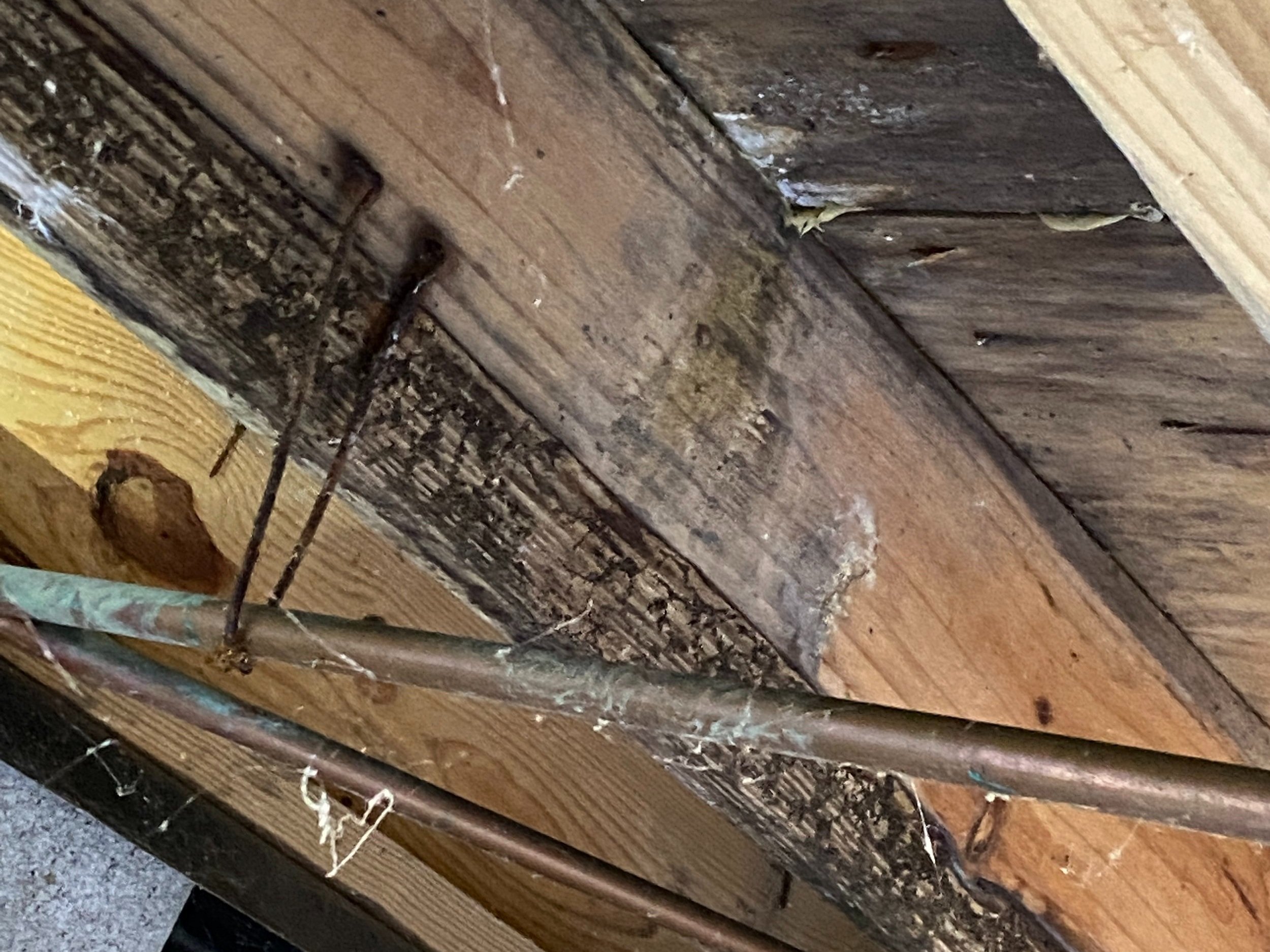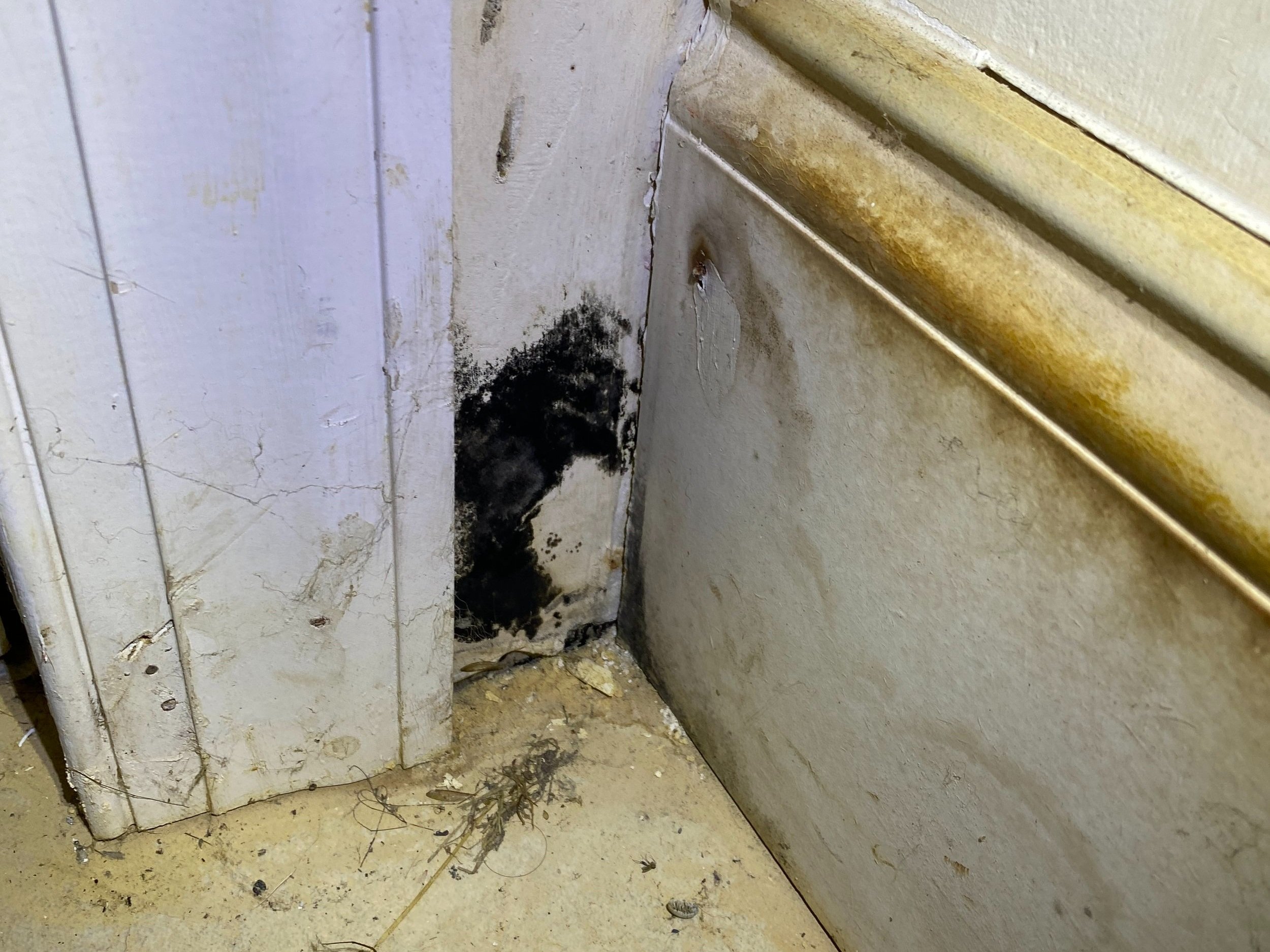How to Identify and Test for Black Mold in Your Home
Mold is a common problem that can occur in any household, and black mold is one of the types that are most concerning. While all mold can be harmful, black mold is particularly worrisome as it can cause serious health problems. In this blog post, I will discuss what black mold is, why it is dangerous, how to test for it, who can help you identify it, how to get rid of it, and more.
What is Black Mold?
Black mold, also known as Stachybotrys chartarum, is a type of fungus that grows in damp and humid areas. It can grow on a variety of surfaces, including walls, floors, and ceilings. Black mold typically appears as a black or greenish-black growth sometimes with a slimy texture. It can have a distinct musty odor and can be found in areas with poor ventilation, high humidity, or water damage.
Is Black Mold Dangerous?
Yes, black mold is dangerous, and exposure to it can cause a range of health problems. Black mold can produce mycotoxins, which are toxic substances that can cause respiratory issues, allergies, and other health problems. Some people may experience symptoms such as coughing, wheezing, sneezing, runny nose, and itchy eyes. In severe cases, exposure to black mold can lead to more serious conditions, such as lung infections and neurological problems.
How Do You Test for Black Mold?
If you suspect that you have black mold in your home, you can have it tested by a professional mold inspector. The most common way to test for mold is to collect air or surface samples and send them to a lab for analysis. The lab will analyze the samples and provide a report that includes the type and amount of mold present. It is important to hire a certified mold inspector or industrial hygienist to perform the testing to ensure accurate results. A licensed mold inspector will also employ various technologies and devices to measure humidity, moisture, and temperature, and can provide a detailed mold report outlining your home’s mold situation.
Who Can Tell Me If I Have Black Mold? Who can test for black mold?
A certified mold inspector can tell you if you have black mold in your home. These professionals have the expertise and equipment necessary to detect and identify mold, as well as to recommend the appropriate remediation methods. It is best to choose a licensed mold inspector who only provides mold testing, assessment, and inspection services and does not provide remediation services as well. If a mold inspector also provides mold remediation, then a conflict of interest exists. The individual who identifies the problem should not also be the individual who provides the solution for the identified problem. Make sure your mold inspector is not a remediator as well.
What Types of Molds are Considered Black Mold?
Stachybotrys chartarum is the most common type of mold that is considered black mold. However, there are other molds that can appear black, such as Cladosporium and Aspergillus niger. While these molds are not as dangerous as Stachybotrys chartarum, they can still cause health problems and should be removed.
What Species are Considered Black Mold?
There are several species of mold that are considered black mold, including Stachybotrys chartarum, Aspergillus niger, Cladosporium, and Chaetomium. While these molds may appear black, they can vary in color and texture depending on the environment and growth conditions.
Some molds may not appear as black, but produce mycotoxins. These molds may include molds in the genuses Aspergillus, Penicillium, Cladosporium, Chaetomium, Fusarium, Alternaria, Trichoderma, and Bipolaris.
What are Mycotoxins?
Mycotoxins are toxic substances produced by certain types of mold, including black mold. These toxins can cause a range of health problems, including respiratory issues, allergies, and neurological problems. Exposure to mycotoxins can occur through inhalation, ingestion, or skin contact, and it can be particularly dangerous for people with weakened immune systems or underlying health conditions.
Black mold, also known as Stachybotrys chartarum, is capable of producing several mycotoxins. The two main mycotoxins associated with Stachybotrys chartarum are satratoxins and atranones. These mycotoxins are highly toxic and can cause a range of health problems, including respiratory issues, allergies, and neurological problems. Exposure to these mycotoxins can occur through inhalation, ingestion, or skin contact, and it can be particularly dangerous for people with weakened immune systems or underlying health conditions. It is important to take black mold seriously and to seek professional help if you suspect it is present in your home.
How Do You Get Rid of Black Mold?
The best way to get rid of black mold is to hire a professional mold remediation company. These companies have the experience and equipment necessary to safely and effectively remove mold from your home. The remediation process typically involves identifying and fixing the source of moisture, isolating the affected area, removing the mold, and disinfecting the area to prevent future growth.
In conclusion, black mold can be a variety of numerous molds that may produce mycotoxins. If you are concerned with knowing if you have toxic (mycotoxin-producing) mold in your home, then contact a professional licensed mold inspector in your area.
I am an independent mold inspector, meaning I do not work for a remediation company or offer remediation services. My goal is to provide honest mold inspection services for Tennessee homeowners and businesses.
If you would like to schedule an mold inspection or testing appointment, call me, send me an email, or send me a form on the Contact page.
*I am not a medical professional and none of the information I discuss or provide should be construed as medical advice. Contact your medical provider for your health issues and concerns.



